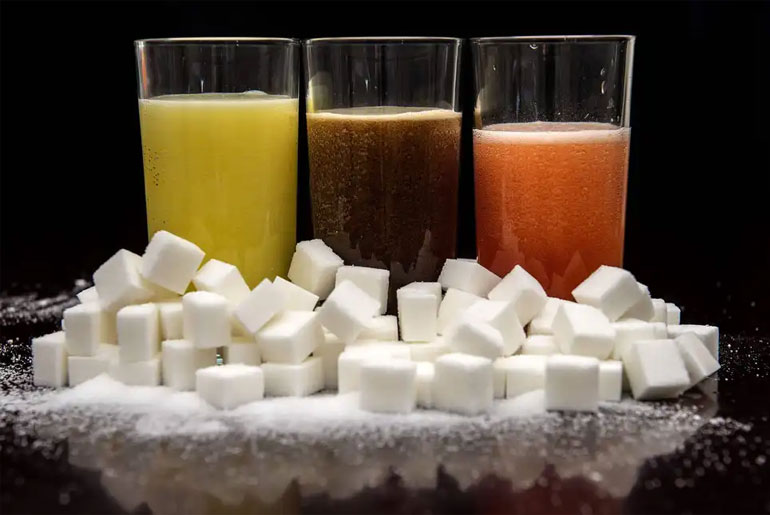A study published in Frontiers in Nutrition has highlighted the potential link between elevated consumption of added sugars and an increased risk of kidney stones. Kidney stones are a painful condition that affects a significant portion of the population, causing symptoms such as severe pain, nausea, vomiting, and more. The study aimed to explore the association between added sugar intake and kidney stone development.
The research analyzed data from the US National Health and Nutrition Examination Survey (NHANES), involving 28,303 adult participants. These individuals self-reported their history of kidney stones and provided information on their dietary habits. The participants’ daily added sugar intake was estimated based on their recall of recent food and drink consumption, gathered through face-to-face and telephone interviews.
“Ours is the first study to report an association between added sugar consumption and kidney stones,” stated lead author Dr Shan Yin, a researcher at the Affiliated Hospital of North Sichuan Medical College, Nanchong, China. “It suggests that limiting added sugar intake may help to prevent the formation of kidney stones.”
Each participant was also assigned a healthy eating index score (HEI-2015), which assessed the nutritional quality of their diet. Factors such as fruits, vegetables, whole grains, as well as moderation of harmful foods like refined grains, sodium, and saturated fats, were considered in the score.
The study’s findings indicated a positive correlation between the percentage of energy intake from added sugars and the likelihood of developing kidney stones. Participants with higher added sugar intake had a greater prevalence of kidney stones. For instance, those in the top 25% of added sugar intake had a 39% higher risk of developing kidney stones during the study period. Similarly, individuals obtaining over 25% of their total energy from added sugars faced an 88% higher risk compared to those with less than 5% of energy from added sugars.
Additionally, the study observed that participants from certain ethnic backgrounds, such as Native American or Asian individuals, had a higher risk of kidney stone development when exposed to above-average levels of added sugars, in comparison to Mexican American, other Hispanic, non-Hispanic White, and non-Hispanic Black individuals. People with a higher Poverty-Income Ratio (PIR) also exhibited an elevated risk when consuming increased amounts of added sugars.
However, it’s important to note that this study was observational in nature and uncontrolled. Therefore, while it suggests a potential association between added sugar consumption and kidney stones, it cannot establish a definitive cause-and-effect relationship. Other factors not accounted for in the study could potentially influence the results.
“Further studies are needed to explore the association between added sugar and various diseases or pathological conditions in detail,” advised Yin. “For example, what types of kidney stones are most associated with added sugar intake? How much should we reduce our consumption of added sugars to lower the risk of kidney stone formation? Nevertheless, our findings already offer valuable insights for decision-makers.”
This research contributes to the growing body of evidence indicating that a high intake of added sugars might be a risk factor for kidney stone development. Nevertheless, further studies are needed to better understand the mechanisms underlying this association and to account for potential confounding variables.
Disclaimer:
The information contained in this article is for educational and informational purposes only and is not intended as a health advice. We would ask you to consult a qualified professional or medical expert to gain additional knowledge before you choose to consume any product or perform any exercise.








